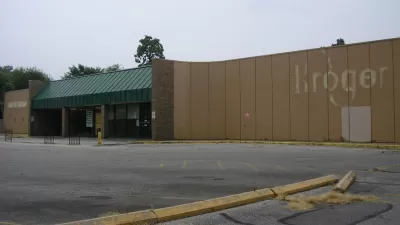Food insecurity in Los Angeles County remains above the national average, disproportionately affecting low-income and minority households, with researchers calling for expanded assistance and systemic solutions to address ongoing disparities.

Despite a 5 percent decline in food insecurity rates from 2023, Los Angeles County continues to face significant challenges, with 25 percent of households — approximately 832,000 — struggling to access sufficient food, according to a USC Dornsife study. The problem is even more acute among low-income residents, where food insecurity affects 41 percent, well above pre-pandemic levels. Nutrition insecurity, marked by limited access to healthy food, impacts 29 percent of households, with Asian communities disproportionately affected. Persistent high living costs and cuts to federal and local food assistance programs have exacerbated these challenges, underscoring the fragile nature of food access in the region.
During the COVID-19 pandemic, expanded food assistance programs like CalFresh and local initiatives helped reduce food insecurity, but the rollback of these supports combined with inflation caused a resurgence in 2023, when food insecurity peaked at 30 percent. Although rates have since declined, they remain far above the national average of 14 percent, disproportionately impacting Latino, Black, and low-income households. For example, Latinos account for 76 percent of food-insecure residents, while 47 percent of affected households include children, highlighting the far-reaching consequences of this crisis.
The study emphasizes that food assistance programs are not reaching enough people, with only 29 percent of food-insecure households enrolled in CalFresh and 9 percent in WIC. Researchers recommend targeted interventions, such as increasing funding for these programs, making healthy and culturally relevant foods more affordable, and strengthening local food systems. USC Dornsife’s research also highlights stark racial disparities in nutrition insecurity, with Asian residents facing the highest rates (35 percent) and Black and Hispanic populations three times more likely to experience food insecurity than white residents, prompting calls for action to address both food and nutrition disparities.
FULL STORY: Food insecurity in LA County remains well above national average, despite slight decline

Study: Maui’s Plan to Convert Vacation Rentals to Long-Term Housing Could Cause Nearly $1 Billion Economic Loss
The plan would reduce visitor accommodation by 25,% resulting in 1,900 jobs lost.

North Texas Transit Leaders Tout Benefits of TOD for Growing Region
At a summit focused on transit-oriented development, policymakers discussed how North Texas’ expanded light rail system can serve as a tool for economic growth.

Using Old Oil and Gas Wells for Green Energy Storage
Penn State researchers have found that repurposing abandoned oil and gas wells for geothermal-assisted compressed-air energy storage can boost efficiency, reduce environmental risks, and support clean energy and job transitions.

Santa Barbara Could Build Housing on County Land
County supervisors moved forward a proposal to build workforce housing on two county-owned parcels.

San Mateo Formally Opposes Freeway Project
The city council will send a letter to Caltrans urging the agency to reconsider a plan to expand the 101 through the city of San Mateo.

A Bronx Community Fights to Have its Voice Heard
After organizing and giving input for decades, the community around the Kingsbridge Armory might actually see it redeveloped — and they want to continue to have a say in how it goes.
Urban Design for Planners 1: Software Tools
This six-course series explores essential urban design concepts using open source software and equips planners with the tools they need to participate fully in the urban design process.
Planning for Universal Design
Learn the tools for implementing Universal Design in planning regulations.
Ascent Environmental
Borough of Carlisle
Institute for Housing and Urban Development Studies (IHS)
City of Grandview
Harvard GSD Executive Education
Toledo-Lucas County Plan Commissions
Salt Lake City
NYU Wagner Graduate School of Public Service





























